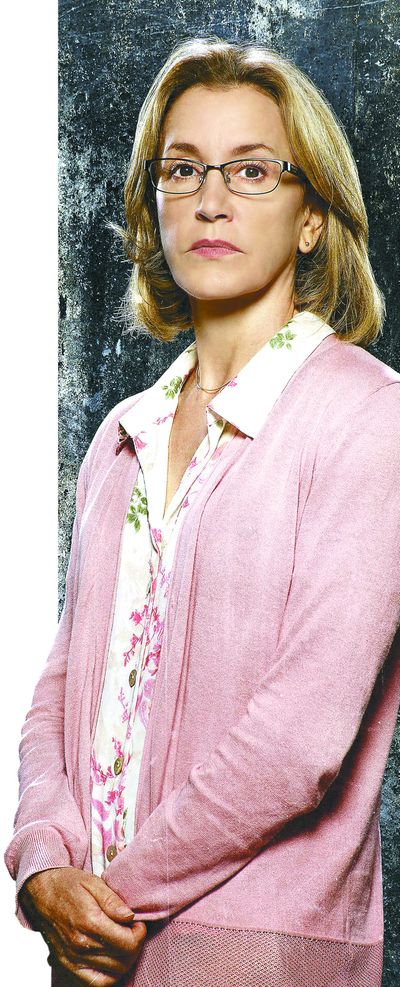Ridiculous soaps and reality TV
ABC’s powerful drama ‘American Crime’ pushes the limits of network television

There’s nothing frivolous about ABC’s “American Crime,” which means that it has a limited shot at becoming a significant hit.
It should.
The drama, which has its premiere today, deals unabashedly with race, religion, class, grief and other terms coming perilously close to replacing George Carlin’s seven dirty words you can’t say on network TV.
“It’s one of the most powerful pieces of television I’ve been associated with in my whole career,” said Paul Lee, who has served as ABC Entertainment president since 2010. “It’s raw. It does just a superb job of breaking the rules, but also connecting in a deeply emotional way.”
For those familiar with network crime dramas, the 11-episode series opens in fairly standard territory.
Russ (Timothy Hutton) enters a hospital in Modesto, California, to identify the body of his son, who has died under mysterious circumstances.
Standard procedure calls for a brilliant but troubled detective to enter the scene and begin putting the pieces together like a modern-day Sherlock Holmes, wrapping up the case just before the local news.
Not this time. In this series, the police take a back seat to stunned parents and a hodgepodge of fragile strangers affected by the death and the subsequent arrest of suspects, most of them people of color.
The characters include a black Muslim woman, a white crack addict and a self-hating Hispanic, all shattered as the case becomes more and more racially charged.
The show is the creation of John Ridley, who scripted “12 Years a Slave,” last year’s Oscar winner for best picture.
“One of the things I wanted to explore,” he said, “was the concept that it’s not about the police. It’s not about the prosecutors. It’s really about the families and what they deal with.”
Ridley has had limited success in TV throughout his long career, but he became a hot property after winning an Oscar for his “12 Years” screenplay.
That kind of cachet allowed him to make a series on his own terms, which meant working intimately with his cast, engaging them in detailed conversations during rehearsals and allowing them to contribute ideas about their characters.
“It was a very organic process that I had never experienced before,” said Hutton, an Oscar winner himself for “Ordinary People” at the start of his career more than three decades ago. “The process of coming together and investing ourselves in these kind of amazing portraits of people caught in this situation was an extraordinary opportunity.”
The end result doesn’t shy away from serious issues. One of the most chilling scenes in an early episode is of a black man raising his hands and begging police not to shoot him, an eerie reminder of recent events in Ferguson, Missouri, and New York City.
“It was never our desire to exploit any of these things,” Ridley said. “At the same time, you want to build a space where people recognize this is not empty entertainment. We’re not worried about chasing events, but people, rightly or wrongly, are going to draw some parallels with what we’re doing.”
The series’ unflinching stance affected cast and crew. It wasn’t uncommon for those behind the camera to have tears in their eyes during the shoot, said Penelope Ann Miller, playing a devout Catholic whose daughter was sexually assaulted during the murder.
“A lot of times they’re sort of checked out, just there to do their jobs,” she said of crew members. “But they were really emotionally invested in the whole process.”
The series will air in the time slot previously occupied by “How to Get Away With Murder,” which has ended its successful first season. That’s probably going to take a lot of regular viewers of ABC’s not-so-serious “TGIT” lineup by surprise.
Good. Network TV could use a few more jolts.